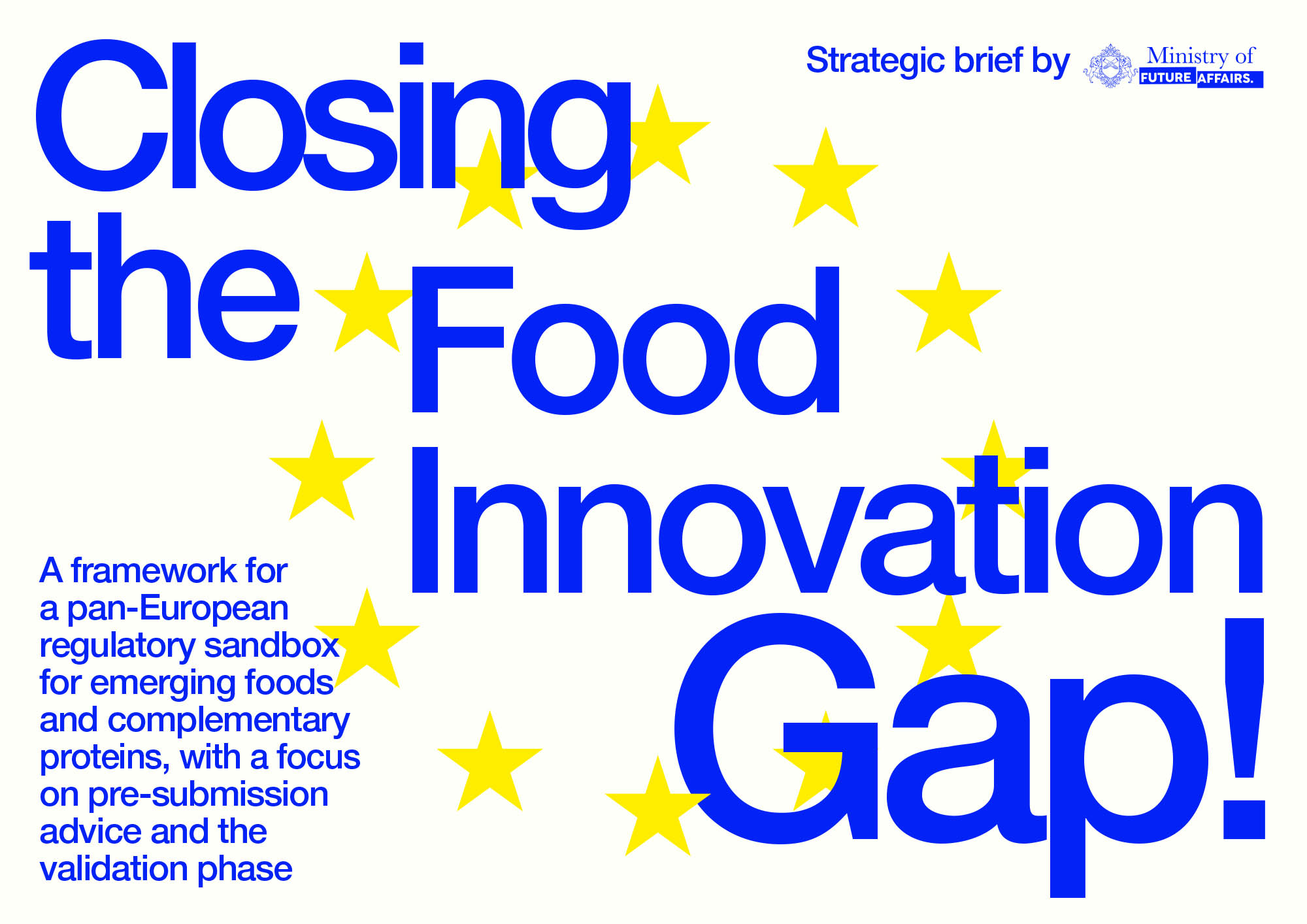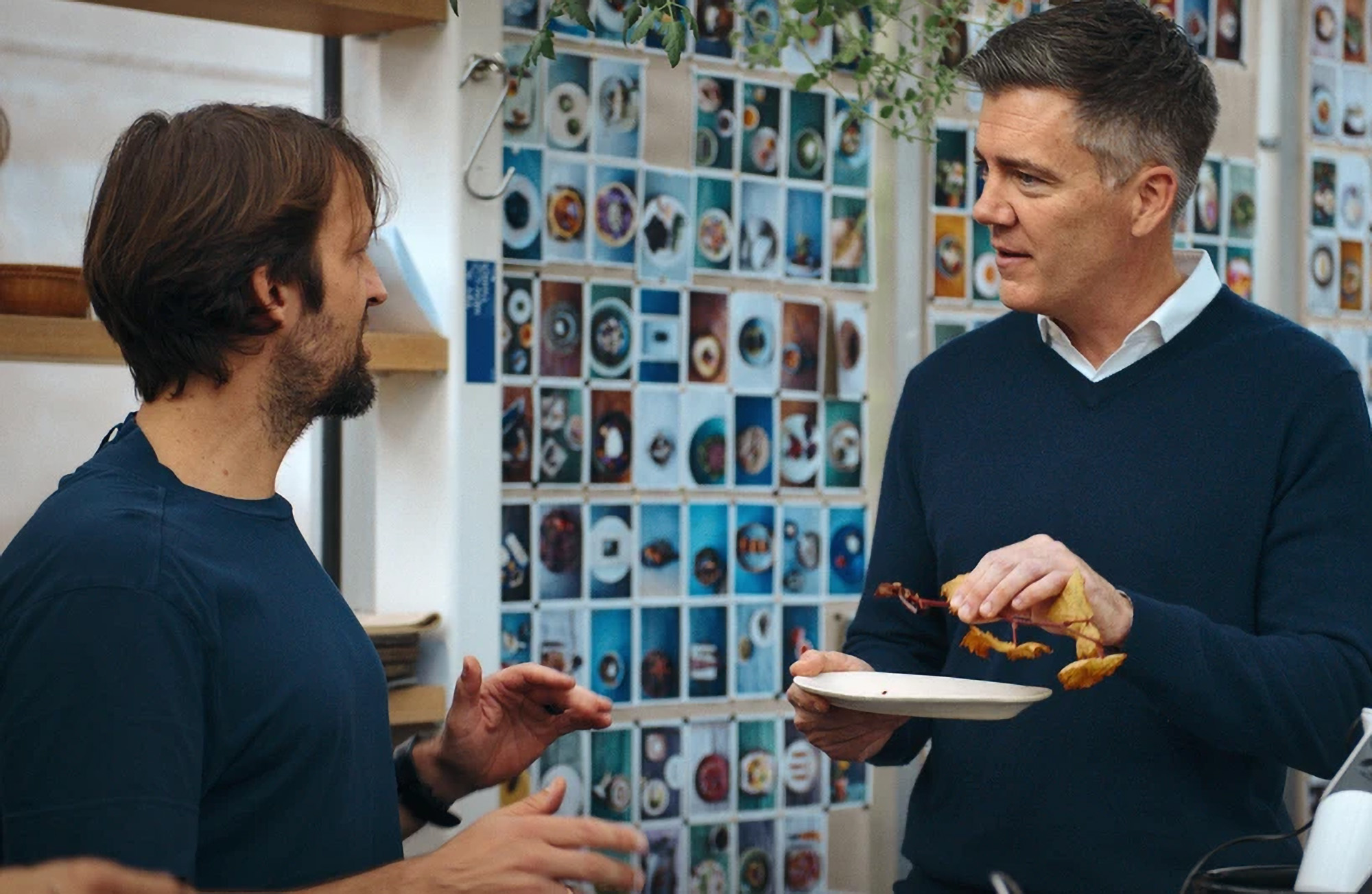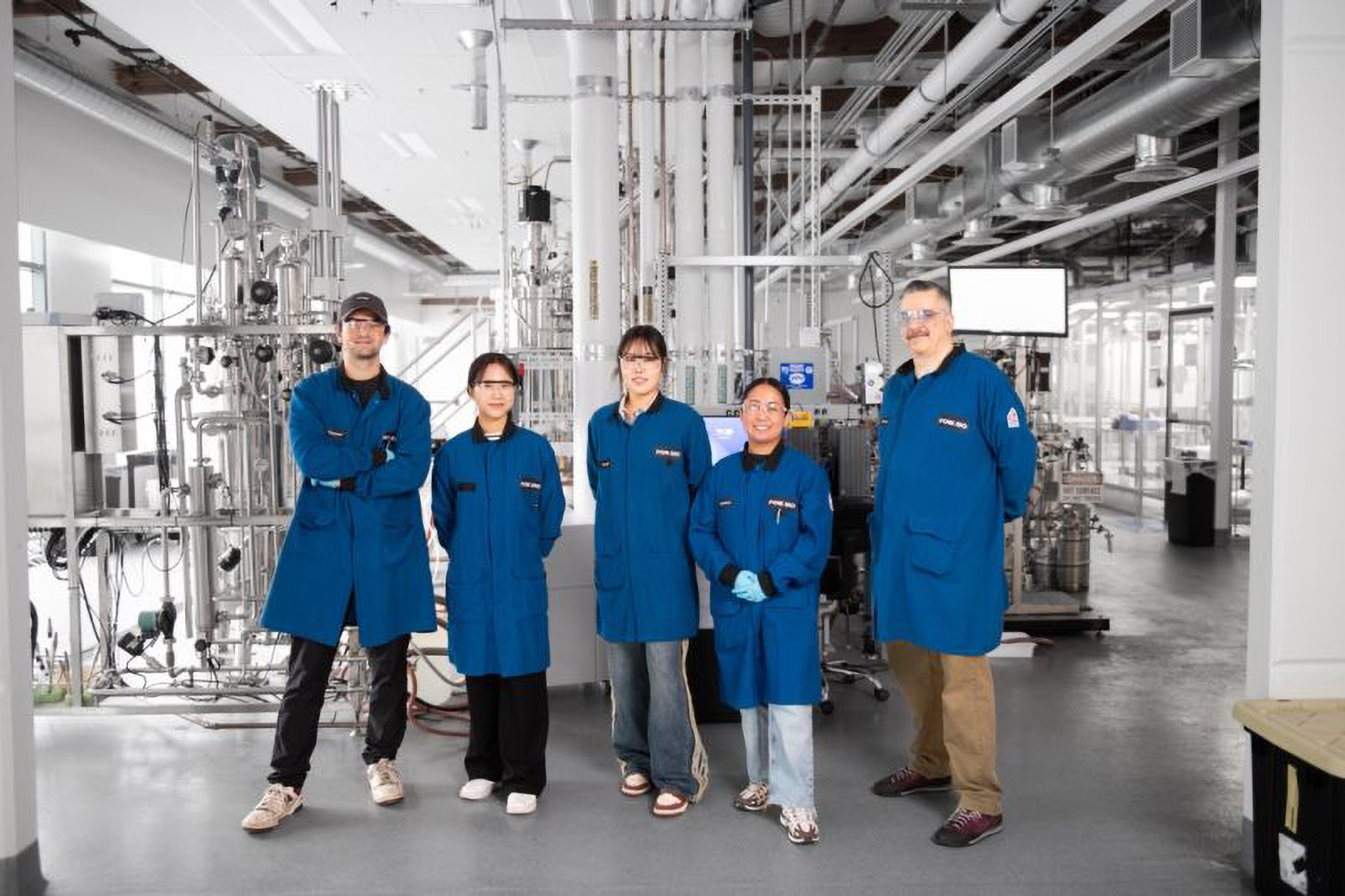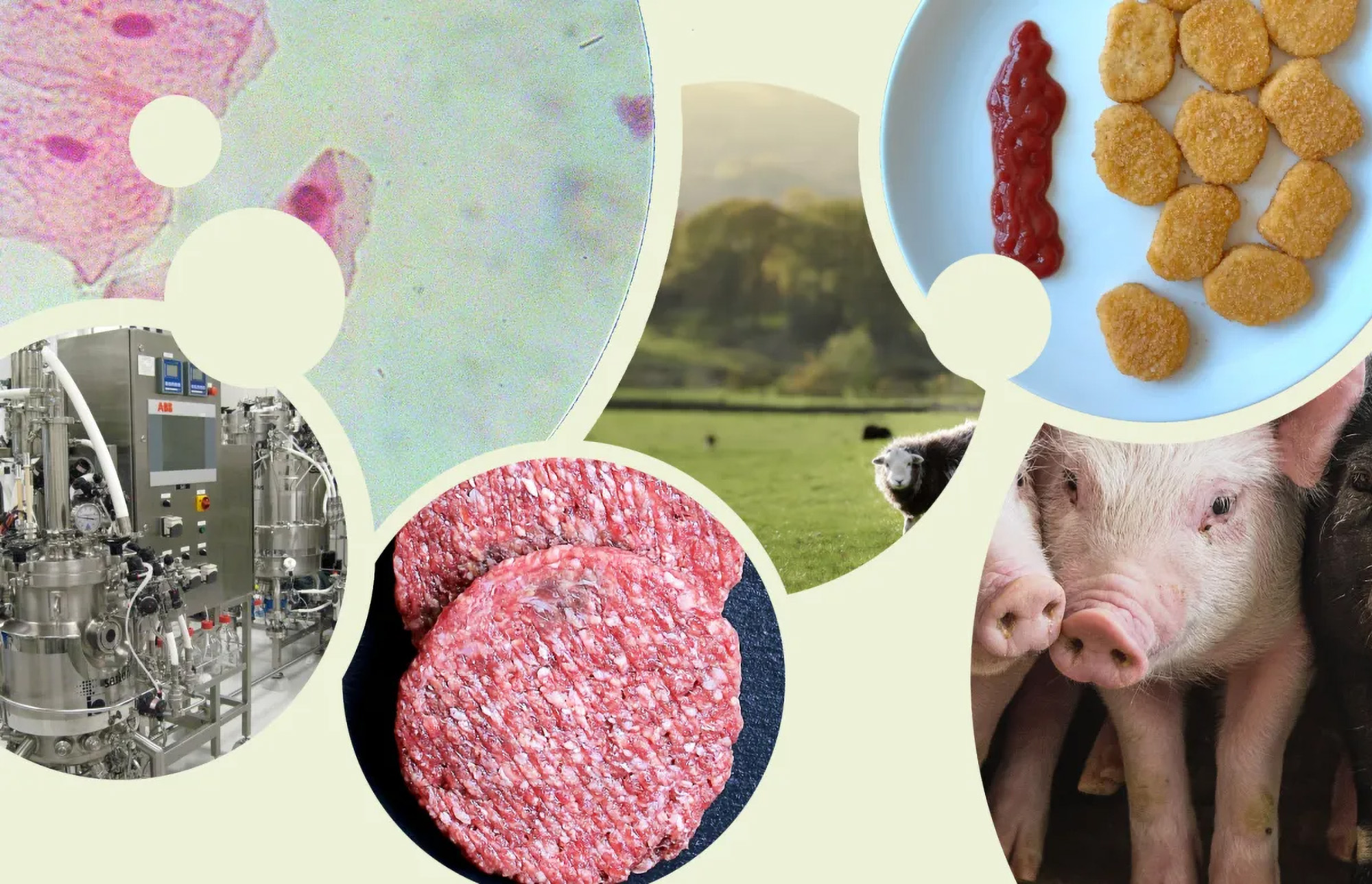

EU risks losing food-tech edge as innovators ‘scale elsewhere’, warns new Brussels report
Europe’s future food industry is quietly scaling abroad, driven by long approval timelines and fragmented oversight at home, according to a new report released by the Ministry of Future Affairs, a Brussels-based think-and-do tank.
The report, Closing the Food Innovation Gap: A Framework for a Pan-European Regulatory Sandbox for Emerging Foods, will be presented at the European Parliament on 12 November 2025. It urges the EU to create a coordinated “regulatory sandbox” for emerging foods such as precision-fermented proteins and cultivated meat – experimental, supervised spaces that allow innovation within strict safety boundaries.
The authors warn that without decisive reform, the EU will continue to lose both companies and capital to the USA and Asia. “We fund innovative European food scientists and entrepreneurs, only to see them leave for other markets due to the EU's unpredictable regulatory approval process,” said Anna Handschuh, Managing Director of the Ministry of Future Affairs.
The 40-page report concludes that the EU’s novel-foods approval pathway – legally capped at 18 months – takes an average of two and a half years, and can stretch to more than five. It also finds that Europe’s data requirements are heavier than those in competing regions: the European Food Safety Authority (EFSA) requires evidence from at least five independent batches of an ingredient, compared with three in the USA and Singapore, along with shelf-life and food-matrix stability studies that add further cost and delay.
By comparison, the US 'Generally Recognized as Safe' process typically completes in 10-12 months, while Singapore’s assessments average nine months. The report notes that these differences are steering companies toward faster-moving markets.
“Clearly, Europe is an attractive location for new companies in the food sector,” said Stéphane MacMillan, CEO & Co-founder of Verley Food, quoted in the report. “Unfortunately, when it comes to bringing products to market, Europe is rarely the preferred option due to the prolonged and unpredictable nature of its regulatory approval process.”
The study finds that investor confidence in Europe’s regulatory framework has “significantly eroded”. Many EU-based food-tech investors now advise startups to launch in the United States first because of its clearer, faster procedures. The result, it says, is that European capital once earmarked for homegrown innovation is now financing facilities abroad – strengthening US and Chinese leadership in biomanufacturing instead of Europe’s.
The report cites Solar Foods’ CSO Dr Juha-Pekka Pitkänen, who said: “We did choose Europe first – and that choice has come at a significant cost. Our regulatory journey has taken more than twice as long as the EU’s own market-approval timeline anticipates. In the meantime, we’ve had to enter other global markets just to remain viable while waiting for approval at home.”
The authors also warn that Europe’s food security is now structurally dependent on Chinese biomanufacturing, citing data from the European Feed Manufacturers Federation showing that China produces 65-90% of the precision-fermentation amino acids and 50–100% of the vitamins imported into the EU for animal feed. Nearly half of all GRAS notifications filed with the US FDA in 2025 came from Chinese firms for fermentation-derived ingredients.
“Europe is facing a choice: enable and control food biomanufacturing at home or get controlled by it from abroad,” the report states.
To reverse the trend, the Ministry of Future Affairs proposes the establishment of a Pan-European Regulatory Sandbox – a cross-border experimental framework that allows new food technologies to be tested safely while improving efficiency and transparency.
“The framework aims to transform the regulatory process from what is currently viewed as a barrier into a strategic enabler,” said Dr Hannah Lester, CEO of Atova Regulatory Consulting and co-author of the report.
The sandbox model would combine features of a testbed, a living lab, and a shared learning platform among Member States. It recommends recruiting ten companies preparing novel-food dossiers within 12 months, aligning national efforts, and using AI-based tools to streamline submissions. Structured in eight “work packages,” the plan calls for updating EFSA guidance, publishing a gap-analysis template, expanding pre-submission advice, and hosting supervised pre-market tastings of novel foods across Europe to engage consumers directly.
The sandbox would aim to produce at least two validated dossiers within the regulated 18-month timeframe – demonstrating that approvals can be completed on schedule while maintaining safety.
Several Member States have already begun experimenting with national sandboxes. The Netherlands pioneered a “pre-market tasting” framework for cell-cultured foods, which has since been adopted in Estonia and inspired regulators in the UK, where the Food Standards Agency recently launched a regulatory innovation program for precision fermentation.
“With the framework for pre-market approval tastings of new foods developed in the Netherlands, which is currently also applied in Estonia and inspiring the UK, we demonstrate what is possible and how collaboration between the food-innovation sector and the regulator can benefit both consumers and companies,” said Karin Verzijden, Partner at Axon Lawyers and report co-author.
The UK’s sandbox, led by Joshua Ravenhill at the Food Standards Agency, is cited as a model for balancing innovation with oversight. “Sandboxes like ours facilitate innovation whilst ensuring citizens’ safety,” Ravenhill said in the report.
The Ministry of Future Affairs grounds its recommendations in Mario Draghi’s 2024 Competitiveness Compass, which called for new “speed, scale, and intensity” in Europe’s economic strategy. The report argues that regulatory efficiency must now become a core competitiveness measure, not a bureaucratic afterthought.
It also urges policymakers to adopt a shared European definition of “complementary proteins” – shifting away from the divisive language of “alternative proteins” that has polarized debate between farmers and food technologists.
The framework concludes with a direct appeal to the European Commission and Member States to align national sandbox initiatives into a coordinated Gen-3 pan-European model, ensuring harmonized data standards and predictable timelines.
“If regulatory sandboxes can be established for other critical technologies, they can also be established for food biotechnology,” the report states. It calls for “coalitions of the willing” among governments prepared to modernize procedures and make Europe the preferred region for scaling new food technologies.
Rinke Zonneveld, CEO of Invest-NL, summed up the investor perspective: “Innovation-friendly regulation lies at the heart of European competitiveness. A coordinated European approach to regulatory sandboxes would help our portfolio companies to stay and scale up in Europe.”
As Handschuh concluded, “Europe’s scientific excellence in food and biotech is unmatched. What we need now is a system that allows those innovations to thrive here – not elsewhere.”
If you have any questions or would like to get in touch with us, please email info@futureofproteinproduction.com






